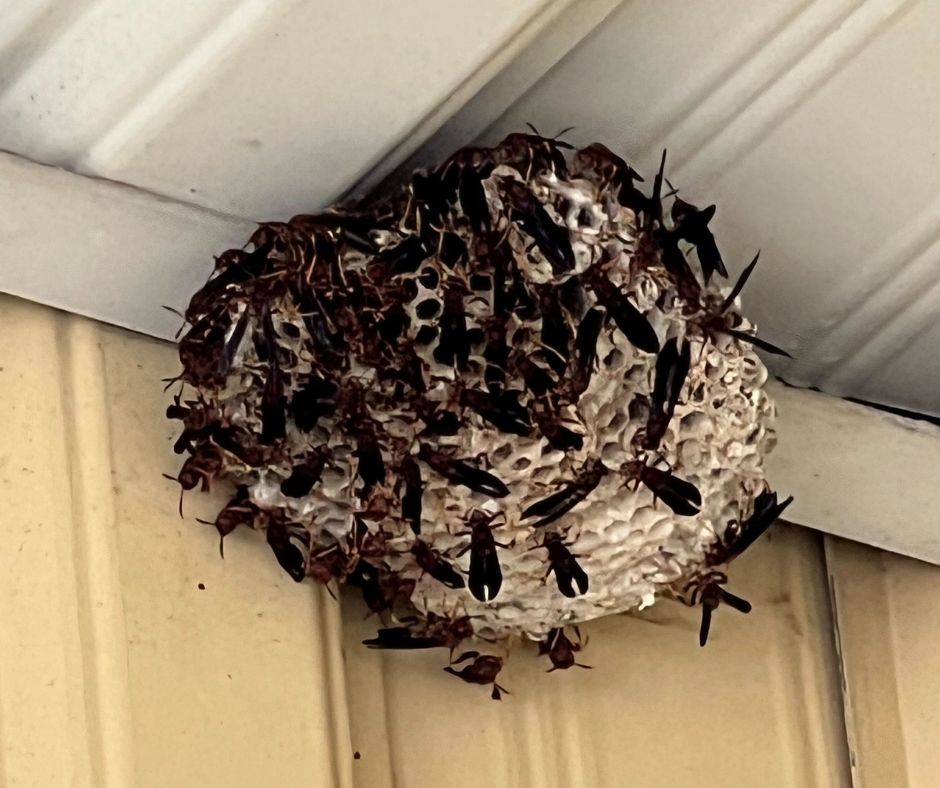 Your Guide to Spring Wasps and Hornets
Your Guide to Spring Wasps and Hornets
Your Guide to Spring Wasps and Hornets
During the springtime, stinging insects like wasps and hornets will build nests on your deck or porch, on your eaves, and even inside your attic space. Wasps and hornets are known for delivering painful, powerful stings, more than once, whenever something gets too close to their nest. This can be a serious issue when they are nesting on your property, and attempting to remove their nests yourself can be dangerous, as wasps and hornets will often swarm, delivering dozens of stings. If you have stinging insects nesting on your property, contact the experts at Westchester Wildlife for professional wasp and hornet nest removal services today. Our team of technicians are armed with the proper tools and training to safely remove wasp and hornet nests without any stinging incidents.
Types of Stinging Insects in Westchester County
Westchester County is home to several different types of stinging insects that can come into conflict with people, including:
- Paper Wasps: These wasps are large, often colored black and yellow, brown, or orange, with a thin waist and long legs that hang down while they fly. Paper wasps create nests out of paper and saliva that hang in an upside-down umbrella shape on porches, decks, vents, attics, and garages
- Yellowjackets: smaller wasps that are bright yellow and black, known for their aggression, painful stings, and tendency to swarm. Yellowjackets will build their nests high up in trees, or underground, near your foundation. You might spot yellowjackets flying in and out of a hole in the ground near your foundation.
- Bald-faced hornets: black-and-white hornets that build their large paper nests on the corners of homes, on light fixtures, or inside attics.
- Mud daubers: very thin black wasps with yellow legs that can be found inside wood siding or shingles. Mud daubers are aggressive, and should be avoided.
How To Keep Wasps Away From Your Home and Yard
If you want to keep wasp nests out of your attic space, the best thing to do is to have a licensed professional inspect your roof, soffit, fascia board and rake board for any potential gaps or cracks that could allow wasps in, and then sealing and fortifying these potential entry points. Keeping wasp nests off your porch, deck, or trees are a bit more difficult. Wasps are attracted to leftover garbage, food sources, and any water they can find, so sealing off your garbage cans, storing and disposing of food properly, and removing bird baths and other water sources can help make your yard less inviting to wasps and hornets.
The best way to keep wasps and hornets away from your yard is to have a regular pest control program done to deter stinging insects from building nests near your home.
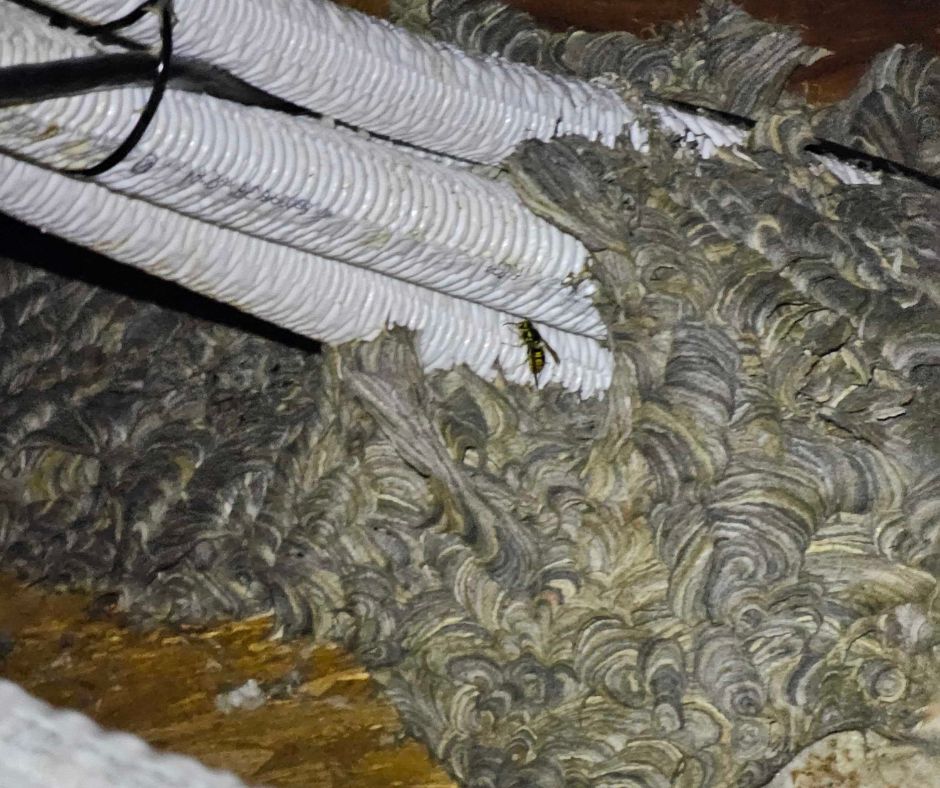
What To Do When You Find a Wasp Nest
When you spot a wasp or hornet nest on your property, it’s important not to disturb it. Wasps and hornets are both known for their aggression, and if you disturb their nests, they may swarm and sting you. DIY wasp removal can be very dangerous, and even life-threatening if you are allergic to wasp venom. Unfortunately, many DIY wasp control products are ineffective, or can be dangerous to the ecosystem if applied incorrectly.
The best thing to do when you find a wasp nest is to call a licensed wildlife removal company like Westchester Wildlife. Our team is highly trained, and has the tools and chemicals needed to safely remove wasp nests from your home without any stinging incidents. The best part is, most wasps and hornets can still sense a wasp nest used to be there, and will tend to avoid building a nest in the same location.
Best Wasp and Hornet Removal in Westchester County
Wasps and hornets are a very common sight in Westchester County in the spring. As soon as the snow melts and the temperatures rise, stinging insects will be looking to build their nests on light fixtures, porches, decks, inside attics, and even underground.
DIY wasp and hornet nest removal is extremely dangerous, and never recommended. Wasps and hornets will often become aggressive when their nests are threatened and will swarm and sting you.
Westchester Wildlife can help, our team of highly-trained pest control professionals will utilize industry-grade pesticides and other tools to safely remove stinging insect nests from your property, without any danger of a stinging incident. Get in touch with our team today for a FREE estimate at (800) 273-6673!
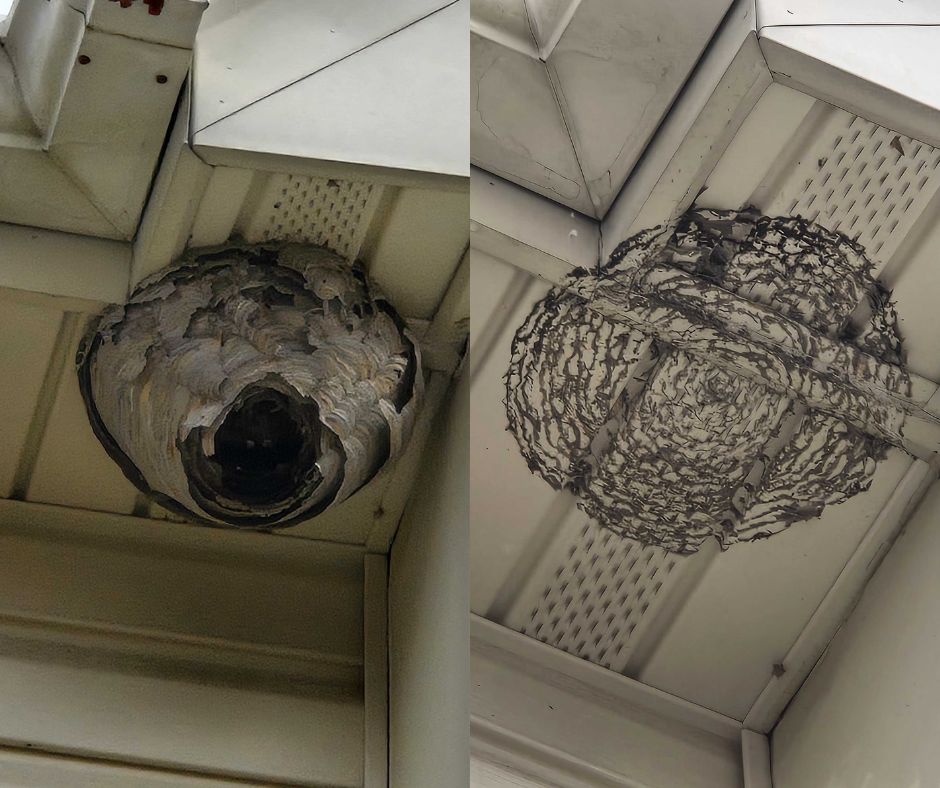
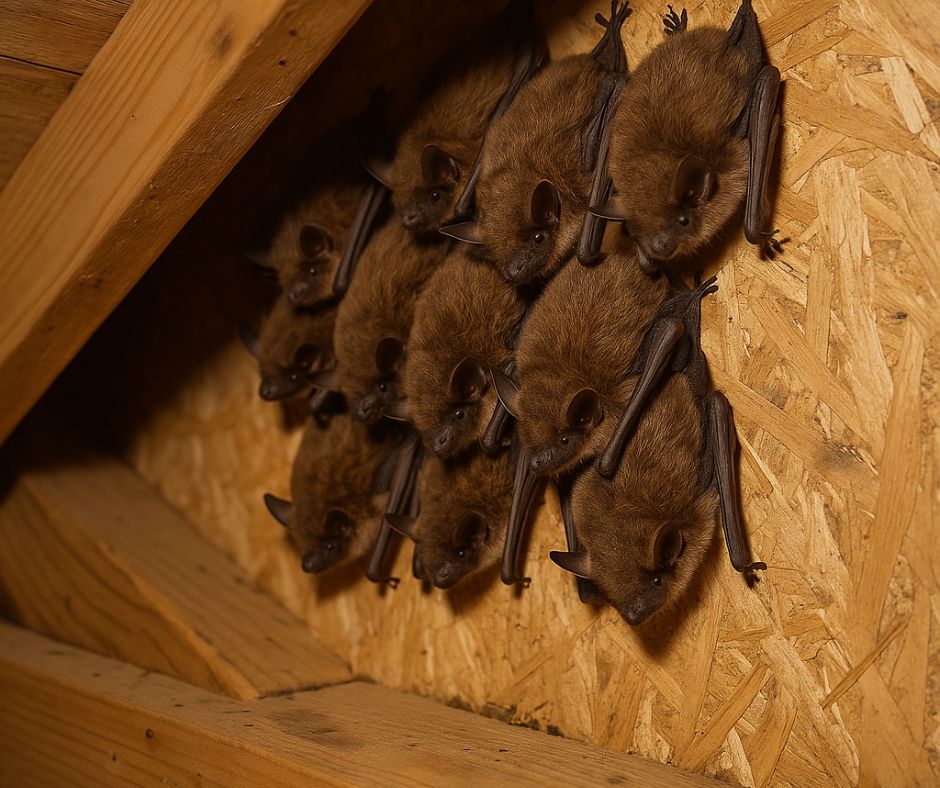 Common Myths About Bats DEBUNKED!
Common Myths About Bats DEBUNKED!
Common Myths About Bats DEBUNKED!
Bats are a very misunderstood species, and due to unfair depictions in storytelling and pop culture, they have garnered a bad rap. However, bats are a very beneficial species that is crucial to the environment! While bats can be dangerous when they get inside your home, they are also federally protected, so it’s important to treat them with care. Westchester Wildlife can help, we offer safe, humane bat removal and exclusion services in the Westchester County area. We utilize the industry-tested Bat-cones and Pro-cones to safely let bats out of your home or commercial property, without allowing them to get back in. Contact our team to get started today at (800) 273-6673!
Myth: All Bats Suck Blood!
False! While vampire bats do exist, they are only a small subspecies that are found in Central and South America. In these countries, vampire bats rarely feed on humans, instead choosing to feed on livestock, birds, or wild animals. None of the bats native to the United States feed on blood. Instead, native bats like the Little Brown Bat and the Hoary Bat feed on insects, fruit, and plant nectar.
Myth: Bats Will Attack Me or Fly Into My Hair!
False! Bats are non-confrontational, and prefer to avoid humans whenever possible. If a bat swoops down close to you, it is most likely trying to catch a mosquito or other insect, and is not trying to hurt you. Bats may bite or scratch, but only when they are cornered/are being handled, which you should NEVER do.
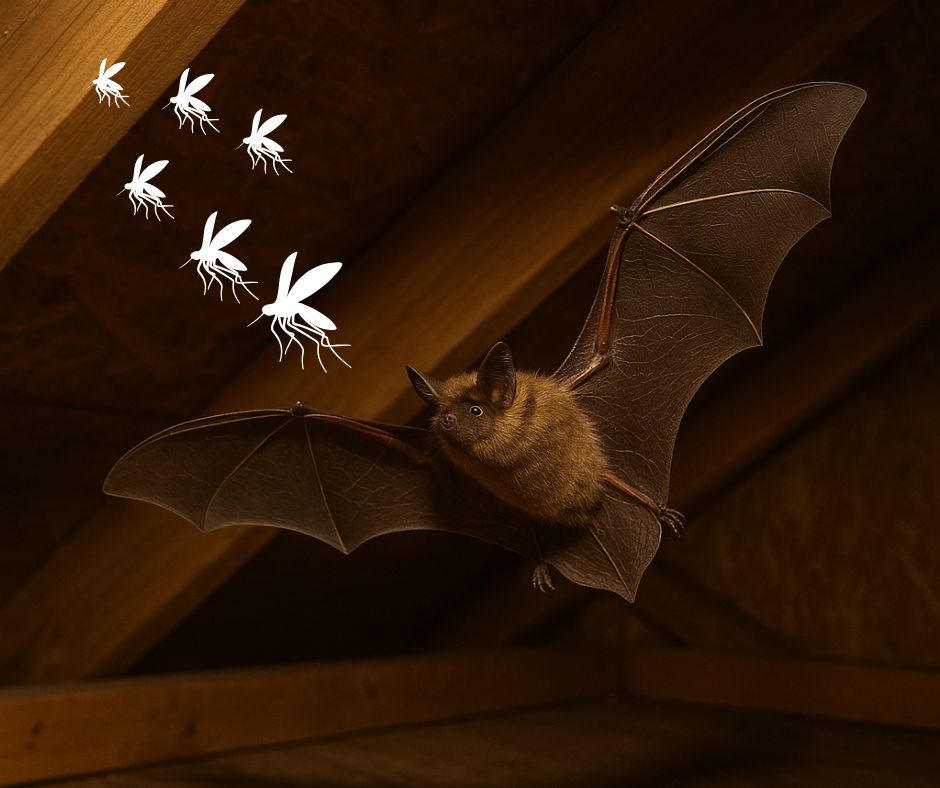
Myth: All Bats Have Rabies!
Nope! Less than 1% of bats test positive for rabies. However, bats are the most commonly reported animal to have rabies, and bats are responsible for most rabies deaths in the United States, so it’s important to treat any bat exposure as a potential rabies exposure. If you see a bat active during the day, a bat found in an unusual space, or a bat that is unable to fly or easily approached, be very cautious and contact animal control immediately as these are often signs of rabid bats. Another reason why bats are able to spread rabies so easily is because they have very small teeth and claws, so their bites and scratches can often go unnoticed.
Myth: Bats are Blind!
Not true! While many people think that bats are totally blind and only rely on echolocation, that could not be farther from the truth! Bats do have very small eyes and sensitive vision that is adapted to see in the dark, as bats are mostly active at nighttime. Their vision allows bats to interact with each other, avoid predators, and navigate across the sky. Echolocation, the process of emitting high-pitched sounds and interpreting echoes, is a mostly supplemental tool used to find insect prey and to navigate.
Myth: Bats Aren’t Beneficial
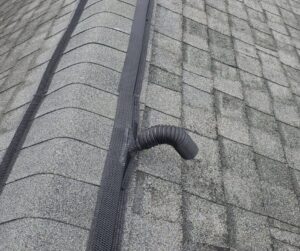 Incorrect! Bats are EXTREMELY beneficial to humans and the environment! Bats are excellent pollinators, crucial for the production of over 500 plants, including several important crops like bananas and mangos. In addition to their excellent pollinating, bats are also excellent pest control agents, able to eat as many as 1200 mosquitoes or mosquito-sized insects in a single hour! Bats are crucial to our ecosystem, but they unfortunately are in danger. Bat populations have been dying off due to encroaching human habitats and the spread of white-nose syndrome. This is why bats are federally protected, and must be handled with care. If you have bats nesting inside your attic, contact the experts at Westchester Wildlife. Our company’s owner and founder Jim Driesacker invented the bat-cone, a humane bat exclusion device that allows bats to leave your attic, but not get back inside. Our team utilizes bat-cones to safely remove bats from your attic without any harm. Get in touch with our team today to get started at (800) 273-6673!
Incorrect! Bats are EXTREMELY beneficial to humans and the environment! Bats are excellent pollinators, crucial for the production of over 500 plants, including several important crops like bananas and mangos. In addition to their excellent pollinating, bats are also excellent pest control agents, able to eat as many as 1200 mosquitoes or mosquito-sized insects in a single hour! Bats are crucial to our ecosystem, but they unfortunately are in danger. Bat populations have been dying off due to encroaching human habitats and the spread of white-nose syndrome. This is why bats are federally protected, and must be handled with care. If you have bats nesting inside your attic, contact the experts at Westchester Wildlife. Our company’s owner and founder Jim Driesacker invented the bat-cone, a humane bat exclusion device that allows bats to leave your attic, but not get back inside. Our team utilizes bat-cones to safely remove bats from your attic without any harm. Get in touch with our team today to get started at (800) 273-6673!
